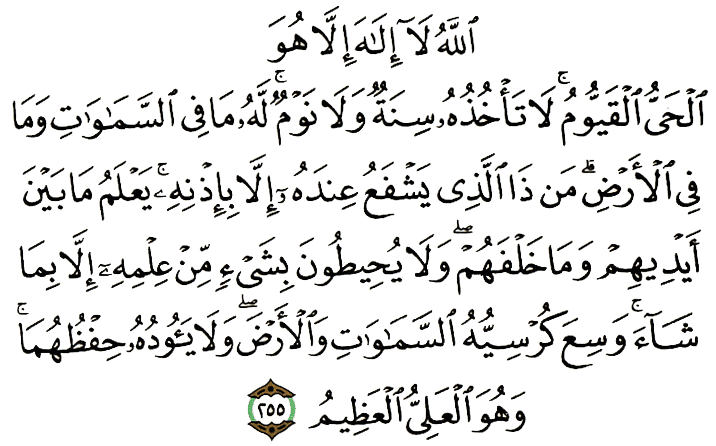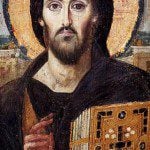
Quite a number of years ago, I wrote the article on Allah for the Macmillan Encyclopedia of Islam and the Muslim World. In 2015, I revised that article for the Encyclopedia‘s second edition. Among other things, I created a very short sidebar to accompany my main entry. This is how it reads, including my own translation from the Arabic of the Qur’an:
The Throne Verse
The Qur’an’s famous Throne Verse (2:255) offers a fine summary of basic Islamic teaching regarding God.
“Allah! There is no god but he, the Living, the Everlasting. Neither slumber nor sleep seizes him. His are all things in the heavens and the earth. Who is there who can intercede with him, except by his leave? He knows what is before them and what is behind them, while they comprehend nothing of his knowledge except as he wills. His throne extends over the heavens and the earth. Sustaining them does not burden him, for he is the Most High, the Supreme.”
Perhaps the most popular and beloved passage in the Qur‘an, this often-memorized assertion of God’s universal dominion is a favorite of artists across the Islamic world. Tradition credits it with a special saving power and reports that the prophet Muhammad himself considered it the greatest verse revealed to him. The depth of Muslim devotion to Allah is apparent virtually everywhere in Islamic life, including even in the use of elaborate calligraphic renditions of the word Allah as architectural and artistic ornamentation.
Whenever I think of the “Throne Verse,” I can’t help but think also of the chorus “He, Watching Over Israel” (“Siehe, der Hüter Israels schläft noch schlummert nicht”) from Felix Mendelssohn’s oratorio Elijah, which is based upon Psalm 121:4 (“Behold, he that keepeth Israel shall neither slumber nor sleep”):
He, Watching Over Israel – Mormon Tabernacle Choir
And then, sadly, I often find myself contrasting that rather sublime subject with the horrific ugliness all too often perpetrated today in the name of Islam.
As a non-Muslim who regards Islam with respect and, on several levels, with admiration, I hope and pray that Muslims will be able to rid Islam of the toxins of extremism. The world of Islam desperately needs them to do this. The world in general does. And the task is clearly theirs, in the last analysis. The need has never been clearer than it is right now, when we are all of us — Christians and Jews, Muslims and Buddhists, atheists and Hindus, Sikhs and animists and pagans and agnostics and apatheists — facing a common, global, challenge that requires, that absolutely demands, international and interreligious cooperation.
***
In slightly related news, it may be the case that the Islamic adhan or call to prayer has been changed this way in the past, but, off the top of my head, I’m unaware of a previous instance. I apologize for being slow to post these links:
“Islamic call to prayer changes in Kuwait amid coronavirus fears – video”
















